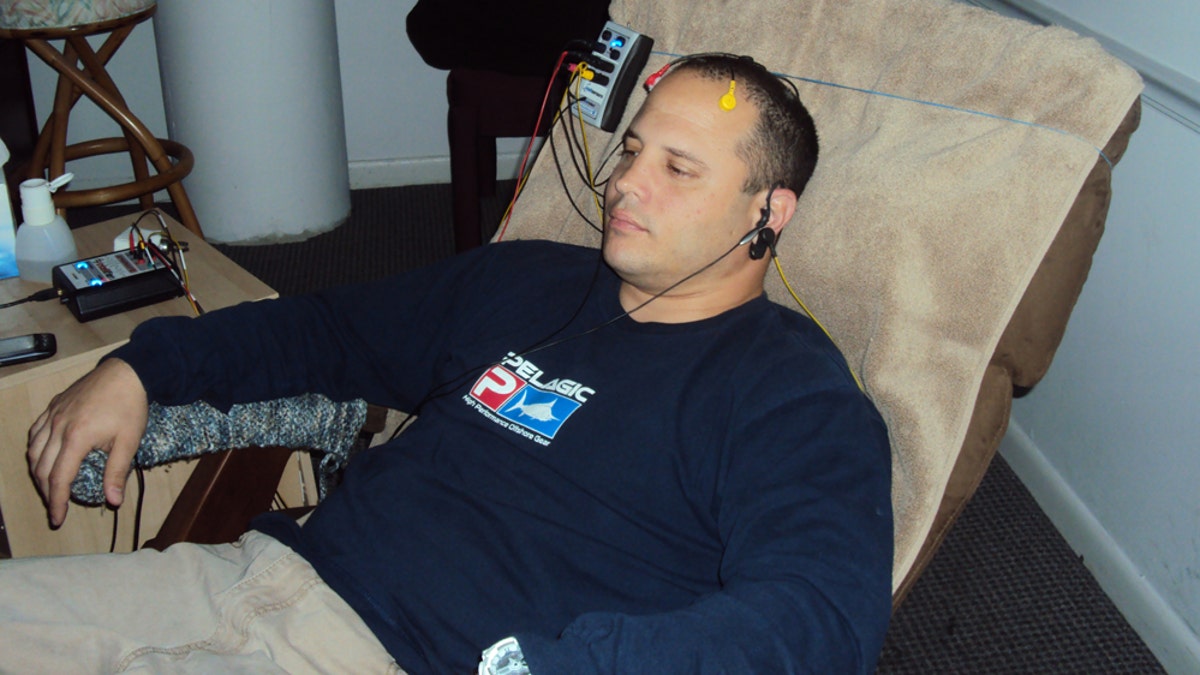
Wynonna Judd credits it with curing her food addiction, and a growing number of people have turned to it as a way to curb unwanted behaviors and stress-related disorders.
Brain training, a relatively new, but growing treatment program, uses sophisticated computer technology and EEG equipment to balance the brain’s energy levels through neuro feedback systems and sound waves.
“Think of it as personal training for the mind, rather than the body,” said Dr. Francis Flynn, a clinical psychologist and addictions therapist who works at the Miami-based Brain Training Centers of Florida.
“The brain is the control center for virtually everything that happens in the human body. When it is out of balance, that imbalance manifests in a myriad of ways,” Flynn said, mentioning addiction as one of the most common imbalances. “People eat or use drugs to silence the noise in their brain.
“Here, we teach people how to calm and quiet their brain on their own,” Flynn said.
Alan Shuman drank and smoked marijuana for 15 years to quiet his brain. Until last year, when he started brain therapy training for his anxiety and depression.
“I noticed a grand difference in how well I slept, how I woke up in the morning with a feeling of pride, of motivation,” he said.
Virginia Delgado is a personal trainer who would tell other people how to eat, but was addicted to food and the comfort it provided her.
“I told myself, 'I have to stop eating. I have to stop eating.’ But, physically, I could not stop.”
Until she tried brain training and lost more than just eight pounds, she said.
“It was freedom from that anxiety, from that feeling of thinking about food all the time,” Delgado said. “I was more relaxed.”
The therapy is also being used to treat depression, ADD, ADHD, post traumatic stress and obsessive compulsive disorders, sleep issues, chronic fatigue syndrome and a host of other physical and mental disorders. Athletes have used it to maximize their physical strength, said Flynn, who also underwent brain training therapy and lost his fear of flying.
Experts say neuro feedback may eventually play a significant role in treating mental disorders – but not enough is known about it to make the data conclusive. Dr. Keith Ablow, a psychiatrist and member of the Fox News Medical A-Team, said deep relaxation is also achievable through modalities like meditation and yoga.
“The combination of cognitive behavioral therapy and neurofeedback offered as ‘brain training’ may be effective for psychological disorders, if used by very gifted clinicians,” Ablow said. “But I would always be treated by a psychiatrist, first, who might then suggest some added modalities with potential benefits.”
“The gold standard in treating psychiatric problems is still insight-oriented psychotherapy, combined with medications or cognitive behavioral therapy or electro/magnetic therapy (such as transcranial magnetic stimulation), as needed,” he added.
But many say brain training has helped them overcome a variety of ailments. One Miami teenager said it controlled his Tourette syndrome – like outbursts and ticks – and now he is now getting straight A’s at school.
Max Matiauda, 15, had been making gasping and whistling noises when he spoke and jerking without warning since kindergarten, his father told Fox News Latino.
“It was very distracting. He could not lead a normal life,” Agustin Matiauda said. “He couldn’t stop from moving his head, symmetrically. First one way, then the other, and repeating. He would speak and he would make these inhaling noises.”
When he was 8 years old, it became “more accentuated,” and soon after he started having troubles sleeping. A psychiatrist prescribed some strong sleep aids and anti-anxiety medication.
“It helped him sleep better, but after a while the noise making got worse. It was every third word he would make noises," he said.
The parents and the boy were were discouraged.
“Nothing really helped,” he added.
Last year, someone told the import export man about brain training and he took his son. After 15 sessions in one month, he was cleared of almost all the symptoms.
“Right after the training, he completely stopped,” Matiauda said about the noises in Max’s speech. "I mean, once in a while but it sounds like he’s clearing his throat.
“It’s a huge difference,” the father said. “He went to straight A’s when before it was a struggle to get B’s. He’s excited. He’s doing well because he is more able to focus.”
Focus and improved memory are both side effects from the brain training, Flynn said.
“When we can help individuals achieve greater balance in the brain – harmonizing their brain waves – the results are pretty close to miraculous,” said Flynn, who has been a Catholic priest for 32 years.
He recognizes that the therapy is relatively new and said it would take years and millions of dollars for it to be part of the mainstream therapy used everywhere.
Dr. Alvaro Padilla, a neurologist at Memorial Regional Hospital in Hollywood, Fla., said the theory has some scientific support and brain training could become an additional avenue to treat some patients.
“Behaviors are learned, and behaviors can be altered through music, visual stimulus and auditory stimulus,” Padilla said.
Elaine de Valle is a freelance writer based in Miami.
Follow us on twitter.com/foxnewslatino
Like us at facebook.com/foxnewslatino








































